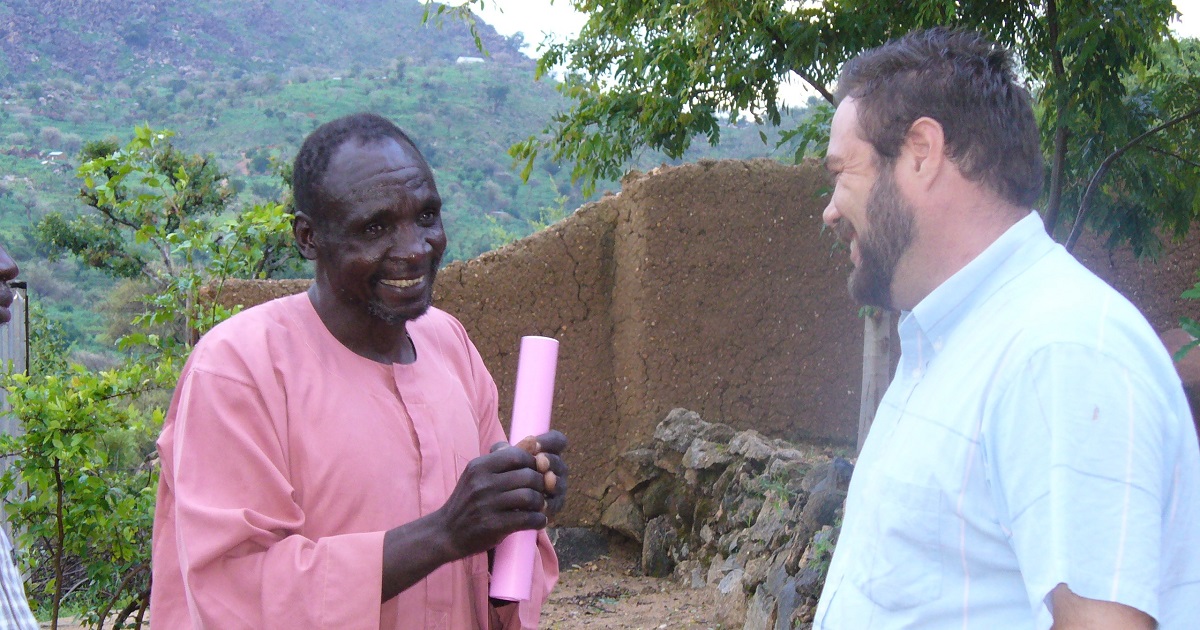
Almost every verb in the Hdi language of Cameroon had forms ending in i, a, and u. But when it came to the word for love, translator Lee Bramlett, could only find i & a.
Bramlett asked the Hdi translation committee, “Could you ‘dvi’ your wife?” “Yes,” they said. That would mean that the wife had been loved but the love was gone. “Could you ‘dva’ your wife?” “Yes,” they said. That kind of love depended on the wife’s actions. She would be loved as long as she remained faithful and cared for her husband well.
“Could you ‘dvu’ your wife?” Everyone laughed. “Of course not! If you said that, you would have to keep loving your wife no matter what she did, even if she never got you water, never made you meals. Even if she committed adultery, you would be compelled to keep on loving her. No, we would never say ‘dvu.’ It just doesn’t exist.”
Thinking about John 3:16 he asked, “Could God ‘dvu’ people?” There was complete silence; then, tears trickled down the weathered faces of these elderly men. Finally, they responded. “This would mean that God kept loving us over and over, millennia after millennia, while all that time we rejected His great love. He is compelled to love us, even though we have sinned more than any people.”
One simple vowel changed the meaning from “I love you based on what you do and who you are,” to “I love you, based on Who I am.” God had encoded the story of his unconditional love into their language. For centuries, the word was there—unused but available, grammatically correct and quite understandable.
It’s stories like these that led my family to join Wycliffe Bible Translators and serve as an instructor at Dallas International University, training the next wave of Bible translation workers. When translating the Bible into a new language, something as small as a vowel can make a world of difference in how we understand important matters such as who God is and how he loves us.
Translators like Lee Bramlett in this story (pictured above) have to understand the Bible well enough to get across the exact nuance of each passage of Scripture as they translate it. That means they have to be trained to accurately understand and translate the Bible. You can contribute to this training effort by partnering with our Wycliffe ministry at DIU.

